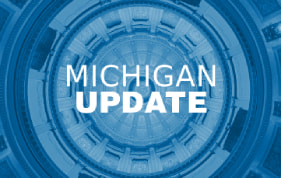Two new tools have been released by the Centers for Medicare & Medicaid Services (CMS) to help states and territories plan to transition back to regular operations after the COVID-19 public health emergency (PHE) ends.
1056 Results found.

MACPAC Report Examines Medicaid Services for ID/DD Populations
In a report to the Medicaid and CHIP Payment and Access Commission (MACPAC), HMA consultants Sarah Barth, Sharon Lewis and former research assistant Taylor Simmons, provided insight and review of Medicaid services for people with intellectual or developmental disabilities (ID/DD).

The Centers for Medicare & Medicaid Services Innovation Center’s Geographic Direct Contracting Model Opportunity
This week, our In Focus section reviews a new model – Geographic Direct Contracting – introduced by the Centers for Medicare & Medicaid Services (CMS) Innovation Center. The model will test whether a geographic-based approach to care delivery and value-based care can improve health and reduce costs for Medicare beneficiaries enrolled in the traditional fee-for-service program across an entire region. This model represents one of the most transformational models released by the Innovation Center. During the 6-year Geographic Direct Contracting model performance period the traditional Medicare program will be replaced by the Direct Contracting program in the 10 selected regions.

Commonwealth Fund Blog Post Highlights Medicare Changes Related to COVID-19
Jennifer Podulka penned a blog post for The Commonwealth Fund in conjunction with The SCAN Foundation, highlighting the legislative and regulatory changes made to Medicare in response to the COVID-19 pandemic. She was part of the HMA team who authored an Issue Brief and policy tracker earlier this year.

The Future of Quality Reporting: Understanding Digital Quality Measurement Practices
In the wake of the COVID-19 pandemic, the need for greater health information technology interoperability, “digital” measures of healthcare quality and performance, and advanced value-based care systems has grown. In January 2021, the National Committee for Quality Assurance (NCQA) publicly released its vision for healthcare quality measurement to the Biden-Harris Department of Health and Human Services (HHS) transition team. The paper, “The Future of Healthcare Quality,” focuses on four core areas, with three of them being specific to the evolution of a digital quality ecosystem:

Health Management Associates Launches Institute on Addiction
Health Management Associates (HMA) announced today creation of the HMA Institute on Addiction (IOA), a division dedicated to supporting the national effort to build an evidence-based, patient-centered, and sustainable addiction treatment ecosystem.

Drivers and Barriers to Adoption of Flexible Medicare Advantage Supplemental Benefits
This week’s In Focus highlights a recent HMA publication examining the drivers and barriers to Medicare Advantage plan adoption of newly available supplemental benefits intended to address unmet health and social needs. Unlike Traditional Medicare, Medicare Advantage plans, which provide coverage for 40 percent of all Medicare beneficiaries, may offer enrollees supplemental benefits which are not covered by the Medicare program. Until recently, the Medicare program has required that supplemental benefits be limited to those that are medical in nature. However, in recent years, Congress and CMS —through four different legislative and regulatory authorities — granted new flexibilities for Medicare Advantage plans to offer non-medical benefits that address social needs. Medicare Advantage plans may also now tailor supplemental benefits and make them available only to certain subpopulations based on chronic disease or health status.

